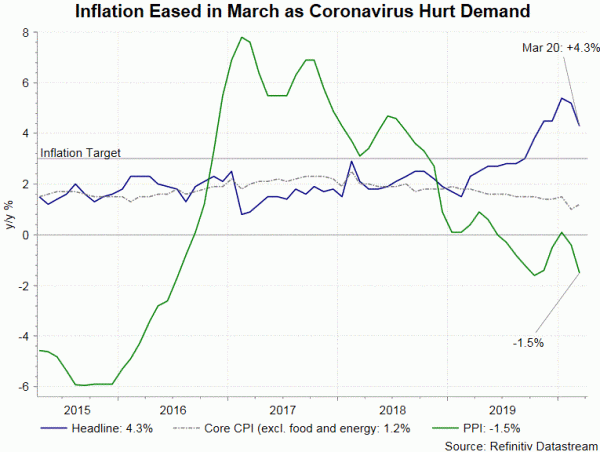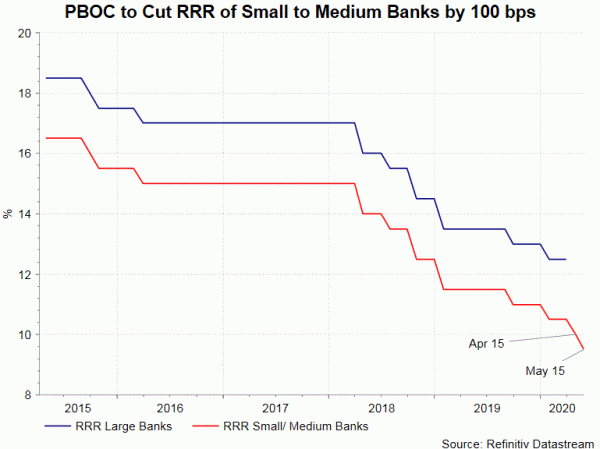Inflation in China eased in March. Headline CPI slowed to +4.3% y/y in March, from a 8-year high of 5.2% in the prior month. The market had anticipated moderation to +4.8%. From a month ago, inflation contracted -4.6%, compared with a +9% gain in February.
Both food and non-food prices as demand shrank amidst the coronavirus outbreak. Food inflation slowed to +18.3% y/y, from +21.9% in February. Pork price was the major driven of the moderation. The gain was +116.4% in March, compared with +135.2% a month ago. Pork price alone sent headline CPI lower by -0.4 percentage point. Meanwhile, fresh vegetable price contracted -0.1% y/y in March, following a +10.9% rise in the prior month. Non-food inflation eased to +0.7% y/y, from +0.9% in February as fuel costs declined -14.6%. This was compared with a -2.3% drop in February. Excluding food and energy, core CPI edged higher to +1.2% y/y (Feb: +1%). This was driven by higher inflation in culture services and recreation.
Upstream price deepened into the deflationary territory. PPI contracted -1.5% y/y, compared with -0.4% in February. Decline in oil prices was the key reason for the weakness.
While staying above PBOC’s target of +3%, slowdown in inflation in March should be a relief for the government as it struggles to rescue the economy with monetary and fiscal policies. Last week, PBOC announced to lower the reserve requirement ratio (RRR) for small and medium-sized banks by -100 bps. The first 50 bps will be effective on April 15 and the rest will be effective on May 15. We expect more easing measures to come.


